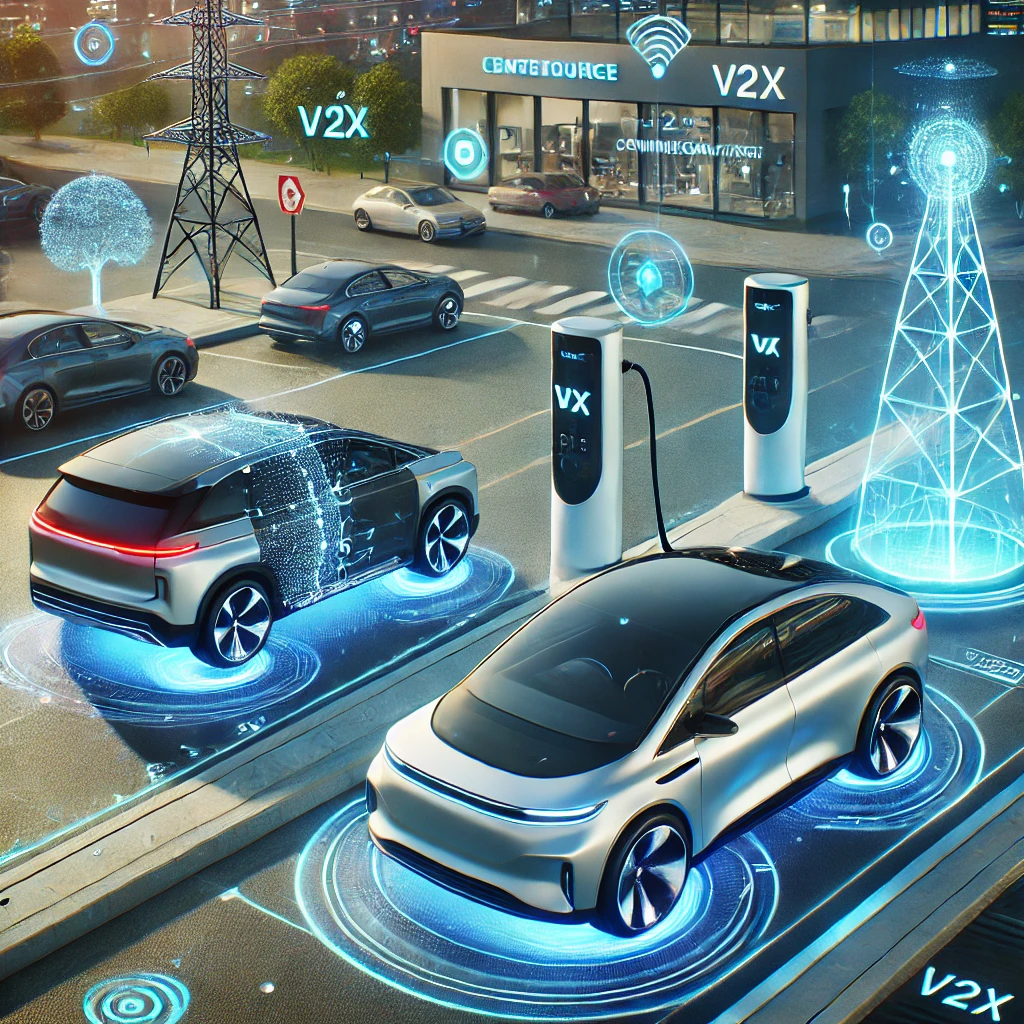Automotive Tech Innovations in 2024: Key Trends and Future Outlook
As we move further into 2024, the automotive industry is undergoing transformative changes driven by rapid advancements in technology. The convergence of electrification, artificial intelligence (AI), connectivity, and sustainability is reshaping how vehicles are designed, manufactured, and experienced. These innovations are not only enhancing vehicle performance and safety but also redefining the concept of mobility itself. This article explores the latest trends in automotive technology and what they mean for the future of transportation.
Electrification and Advanced Battery Technology
The push towards electrification continues to dominate the automotive landscape in 2024. With governments worldwide implementing stricter emission standards and offering incentives for electric vehicle (EV) adoption, automakers are investing heavily in the development of electric platforms. The result is a growing lineup of EVs that are more accessible, affordable, and technologically advanced than ever before.
One of the most significant advancements in this area is the development of solid-state batteries. These batteries offer higher energy densities and faster charging capabilities, addressing two of the most common concerns associated with EVs—range anxiety and charging time. The emergence of wireless charging systems is also simplifying the EV ownership experience, allowing drivers to charge their vehicles effortlessly by simply parking over a charging pad (PTC) (iLounge).
The expansion of EV charging infrastructure is another critical trend. Governments and private entities are working together to build more accessible and efficient charging networks, including fast-charging stations and widespread charging points in both urban and rural areas. This infrastructure development is crucial to supporting the growing number of EVs on the road and making them a practical option for a broader range of consumers (Rinf Tech).
Autonomous Vehicle Technology
Autonomous driving technology continues to evolve, with significant advancements expected in 2024. While fully autonomous vehicles (Level 5) are not yet commonplace, we are seeing more sophisticated advanced driver-assistance systems (ADAS) becoming standard in new cars. These systems, which operate at Level 3 and Level 4 autonomy, require minimal or no human intervention in certain conditions, enhancing safety and reducing the likelihood of accidents.
AI and machine learning are at the core of these advancements, enabling vehicles to make intelligent decisions in real-time. The introduction of Level 5 autonomous vehicles, which require no human input at all, is inching closer to reality, promising to transform the driving experience and open new possibilities for mobility (iLounge).
Connectivity and the Internet of Things (IoT)
The integration of connectivity and IoT into vehicles is revolutionizing the automotive industry. In 2024, connected cars are becoming the new norm, equipped with advanced infotainment systems, vehicle-to-everything (V2X) communication, and seamless integration with smartphones. V2X communication allows vehicles to interact with each other, infrastructure, and even pedestrians, significantly enhancing road safety and traffic management.
The seamless integration between vehicles and smartphones is also improving the user experience, allowing car owners to control various aspects of their vehicle remotely. This includes everything from climate control to security features, providing a level of convenience and customization that was previously unimaginable (iLounge).
However, with increased connectivity comes heightened cybersecurity risks. As vehicles become more software-driven, they are vulnerable to various cyber threats, including phishing attacks, ransomware injections, and infotainment system hijacks. In response, the automotive industry is placing greater emphasis on developing robust cybersecurity measures, including advanced encryption methods, secure cloud-based systems, and real-time monitoring integrated into vehicles (Rinf Tech).
AI-Empowered Applications and Software Development
AI-empowered applications are revolutionizing the automotive industry, from vehicle design and manufacturing to customer service and engagement. AI-driven predictive maintenance, for example, allows vehicles to forecast potential issues before they occur, reducing downtime and improving reliability. Enhanced user interfaces powered by AI are also providing more intuitive and personalized driving experiences.
The integration of AI into software development processes, known as AI-augmented software development, is gaining traction. This approach automates and optimizes various stages of software development, from code generation to quality assurance, leading to more reliable and high-performing automotive software solutions. As software continues to play a critical role in vehicle functionality, the ability to quickly and efficiently develop and update software will be key to staying competitive in the automotive market (Rinf Tech).
Sustainable and Eco-Friendly Solutions
Sustainability is becoming a focal point in the automotive industry, not just in terms of reducing emissions but also in manufacturing practices. In 2024, automakers are increasingly adopting eco-friendly materials and production methods. This includes using recycled materials, reducing waste, and incorporating renewable energy sources into the manufacturing process.
Solar-powered vehicles are also gaining traction, with solar panel integration becoming more common. These panels provide an additional renewable energy source to charge electric batteries, further reducing the carbon footprint of vehicles. The automotive industry’s commitment to sustainability is not just about meeting regulatory requirements; it is about shaping a future where mobility is both efficient and environmentally responsible (iLounge).
The Road Ahead
The automotive industry in 2024 is at the forefront of technological innovation, with electrification, autonomy, connectivity, and sustainability driving the future of mobility. As these technologies continue to evolve, they promise to make our journeys more efficient, enjoyable, and environmentally friendly.
The future of automotive technology is not just about getting from point A to point B; it is about the experience and the impact we make along the way. Automakers that embrace these trends and integrate them into their vehicles will be well-positioned to lead the industry in the years to come.
In conclusion, the advancements in automotive technology in 2024 are reshaping the way we think about transportation. From electric vehicles with advanced battery technology to AI-driven autonomous systems and sustainable manufacturing practices, the future of mobility is smart, connected, and eco-friendly. As we look ahead, the continued innovation in automotive technology will undoubtedly transform the industry and our daily lives.

